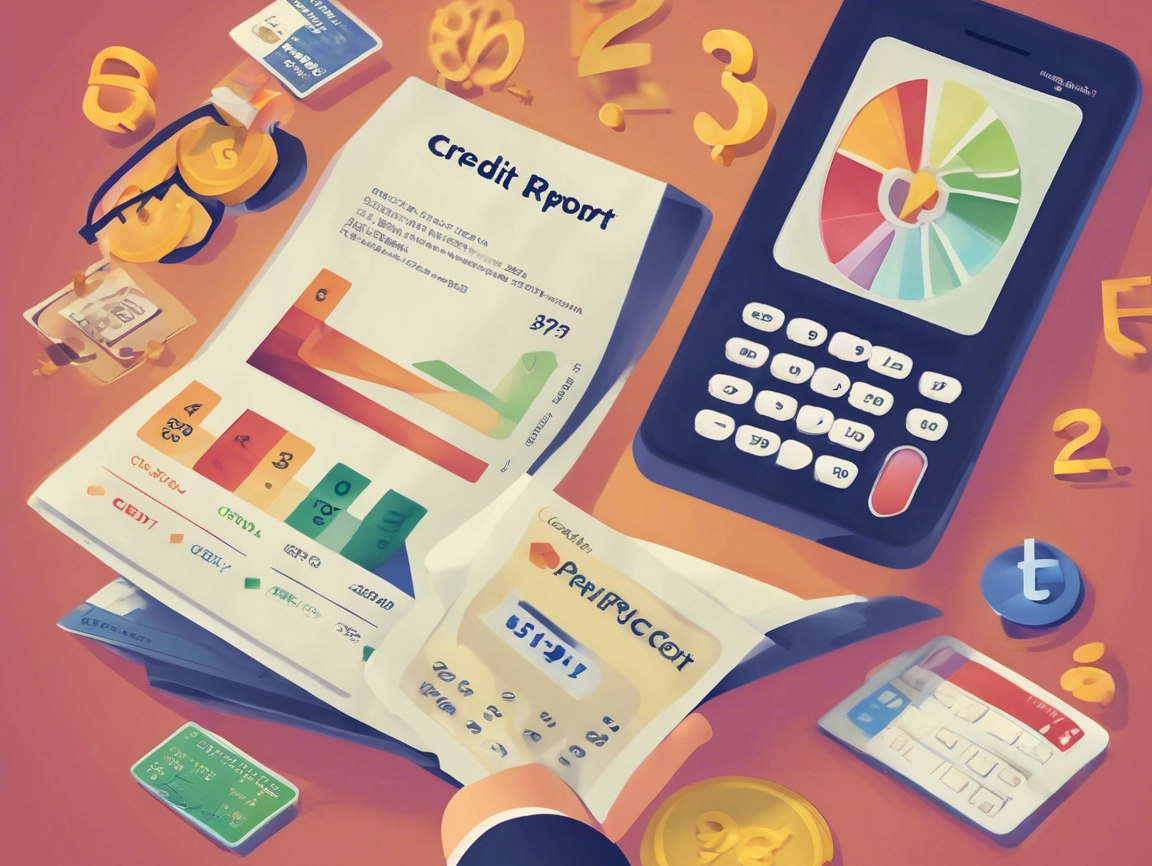Understanding how often to check your credit report is crucial for maintaining strong financial health. Your credit report serves as a detailed record of your financial history, directly impacting your credit score. By monitoring it regularly, you can catch errors, track progress, and make informed decisions.
While you can check your credit report as frequently as you like, experts suggest that daily or weekly checks are usually unnecessary. However, if you’re working on improving your credit or preparing for a major purchase like a mortgage, more frequent checks can be beneficial. This proactive approach helps you stay on top of your financial status and avoid surprises.

Regular checks also play a key role in protecting against identity theft and errors. Spotting unusual activity early can prevent significant damage. Additionally, numerous tools are available to help you monitor your credit without affecting your score, making it easier than ever to stay informed.
Understanding the Importance of Regular Credit Checks
Regular reviews of your credit report are vital for keeping your finances in top shape. By staying informed, you can better understand your credit score and history, which play a significant role in your financial decisions.

Monitoring Your Financial Health
Keeping current with your personal information in the report allows you to track your financial progress effectively. This proactive approach helps you stay aware of your account activity and identify any discrepancies early on.
The three major credit bureaus—Equifax, Experian, and TransUnion—offer free reports, which provide a safe way to monitor your financial status. Regular checks empower you to dispute inaccuracies, ensuring your credit history remains accurate and up-to-date.
Protecting Against Identity Theft
Monitoring your account activity is crucial for detecting errors or fraudulent activities promptly. Early detection can prevent significant damage, such as identity theft, which can have long-lasting effects on your financial health.
By reviewing your report regularly, you can spot unfamiliar inquiries or new accounts, serving as an early warning system. This vigilance is key to safeguarding your personal data and maintaining a clean credit history.
How Often Should You Check Your Credit Report
Monitoring your credit history is a smart move for financial stability. Experts suggest checking your credit report at least once a year. However, if you’re planning a major purchase like a home or car, it’s wise to review your report several months before applying for a loan.
Here’s a breakdown of recommended check frequencies:
| Frequency | Recommended For | Benefits |
|---|---|---|
| Annually | General monitoring | Ensures accuracy and catches long-term trends |
| Quarterly | Active financial changes | Helps track progress and detect quicker issues |
| Before Loans | Major purchases | Provides a clear financial snapshot for lenders |
Credit bureaus update your information monthly, so timing your checks can make a difference. Catching errors early prevents future problems. Consider using free credit options online to stay informed without costs.

Guidelines for When to Check Your Credit Report
Regular checks of your credit report are essential for maintaining financial health and making informed decisions. Knowing when to review your report can help you stay on top of your finances and avoid potential issues.
Annual Reviews and Timely Intervals
Experts recommend checking your credit report at least once a year. This annual review helps ensure accuracy and catches long-term trends. For those with active financial changes, quarterly checks can provide more frequent updates.
Timely intervals for checking your report can also help manage and improve your credit card usage. Aligning these checks with other annual financial reviews, like tax filings, ensures a comprehensive overview of your financial status.
Key Moments: Before Loans, Applications, and Job Searches
It’s especially important to check your credit report before applying for credit cards or loans. This helps ensure no errors or fraudulent activities are present, which could affect your application.
When preparing for major purchases like a mortgage, checking your report several months in advance is wise. This proactive approach allows you to address any issues before applying for loans or credit cards.
By investigating your credit identity details, you can avoid mistakes that might affect your applications. This vigilance is key to safeguarding your personal data and maintaining a clean credit history.
The Process of Checking Your Credit Reports and Scores
Understanding the process of monitoring your credit reports and scores is essential for maintaining financial health. This involves using various tools and methods to access your credit information, understanding the types of inquiries, and knowing how to correct errors.
Exploring Various Tools and Methods
Accessing your credit report and score can be done through several online tools and services. The three major credit bureaus—Equifax, Experian, and TransUnion—offer free annual reports. Additionally, many financial institutions provide free credit scores as part of their services.
Using these tools, you can monitor your credit activity and track changes over time. This helps in identifying trends and ensuring the accuracy of your information.
Soft Inquiries vs. Hard Inquiries
When lenders or creditors check your credit, they make either a soft or hard inquiry. Soft inquiries, such as those for promotional offers, do not affect your score. Hard inquiries, which occur when you apply for credit, may have a temporary impact on your score.
Lenders view multiple hard inquiries within a short period as a higher risk, which can lower your score. Understanding the difference helps you manage your credit applications wisely.
Correcting errors on your report involves filing a dispute with the credit bureau. They are required to investigate and resolve the issue within a specified timeframe. Regular checks help identify and address these errors promptly, ensuring your credit history remains accurate.
By regularly monitoring your credit reports and scores, you can maintain and improve your financial standing over time. This proactive approach is key to securing better loan terms and interest rates from lenders.
How Credit Monitoring Services Can Enhance Your Oversight
Credit monitoring services offer a proactive way to keep track of your financial status. These services provide continuous oversight of your credit activity, ensuring you stay informed about any changes or suspicious behavior. By receiving timely alerts on unusual activities in your payment history, you can address issues before they escalate.
One key advantage of these services is that they often provide a copy of your credit report more frequently than the annual free report. This allows you to stay updated on your credit history without waiting for the yearly update. Automated alerts can detect errors and potential identity theft faster than manual checks, giving you peace of mind.
With credit monitoring, you receive up-to-date information about your credit history directly. This service empowers you to quickly resolve discrepancies and improve your financial health. It’s a smart way to stay ahead of any potential issues.
Dealing with Credit Report Errors and Fraud
Spotting and addressing mistakes in your credit report is a critical part of maintaining accurate financial records. With 1 in 5 consumers finding errors, it’s essential to know how to handle these issues effectively.
Identifying and Disputing Inaccuracies
Start by reviewing your report for outdated information or incorrect account details. Common errors include mistaken accounts or outdated addresses. If you find a discrepancy, file a dispute with the credit bureau within 30 days for investigation. You’re entitled to a free updated report if changes are made.
Businesses must correct or remove inaccurate information they’ve reported. You can also request a statement explaining the dispute be added to your file, though this may incur a fee.
Recognizing Fraudulent Activity
Be alert to signs of fraud, such as unfamiliar inquiries or unexpected new accounts. Regular monitoring can help catch these issues early, reducing the risk of identity theft. Tools like automated alerts from credit bureaus can detect suspicious activity faster than manual checks.
Monitoring your report year-round is key to mitigating identity theft risks. Services offering more frequent access to your report can help you stay informed and address discrepancies promptly, especially when applying for new credit.
Vigilance over your credit history is vital to prevent long-term financial harm. Regular checks ensure accuracy and help you address issues before they impact your credit score or loan applications.
Leveraging Credit Reports for Financial Wellness
Using your credit report is a powerful way to boost your financial health. It helps you spot errors, track your progress, and make smart money decisions. By staying proactive, you can avoid surprises and build a stronger financial future.
Improving Your Credit Score Over Time
Regularly reviewing your credit report can help you identify areas for improvement. For instance, you might notice high credit card balances or late payments that are hurting your score. Addressing these issues can lead to steady improvements over time.
One effective strategy is to focus on key metrics like your credit utilization ratio and payment history. Keeping your credit card balances low and paying bills on time can significantly enhance your score.
Utilizing Apps and Alerts for Better Management
Modern apps and alerts make it easier than ever to monitor your credit. These tools provide real-time updates and can notify you of any suspicious activity, helping you stay on top of your financial health.
Free credit services often include detailed reports and score tracking. By leveraging these resources, you can gain valuable insights and make informed decisions to improve your financial standing.
Disputing inaccuracies quickly is also crucial for maintaining a healthy credit account. The faster you address errors, the sooner you can prevent potential damage to your score.
Conclusion
Staying informed about your financial status is key to making smart decisions throughout the year. Regular reviews of your financial records can help maintain accuracy and ensure you’re on track with your goals.
A central idea is to adopt a proactive approach to monitoring your financial health. This means not only knowing when to review your reports but also understanding the processes involved in maintaining a clean and accurate record.
By staying vigilant and addressing errors swiftly, you can protect your financial well-being. Remember, being proactive about your financial health can lead to better loan terms and lower interest rates.
Take charge of your financial future by staying informed and addressing any discrepancies promptly. This central idea will guide you in maintaining a healthy financial status year-round.
FAQ
What information is included in a credit report?
Your credit report contains details about your credit accounts, payment history, debts, and public records like bankruptcies or foreclosures. It also includes personal information such as your name, address, and employment history.
How can you obtain a free credit report?
You can get a free credit report once a year from each of the three major credit bureaus (Experian, Equifax, and TransUnion) through AnnualCreditReport.com. Some credit card issuers also offer free credit scores and reports.
What is the difference between a credit score and a credit report?
Your credit score is a three-digit number based on the information in your credit report. It reflects your creditworthiness, while your credit report provides detailed information about your credit history and accounts.
How long does it take to improve a credit score?
Improving your credit score takes time and depends on the factors affecting it. Paying bills on time, reducing debt, and avoiding new inquiries can help raise your score over several months or years.
Can checking your credit report hurt your score?
Checking your own credit report is a soft inquiry and does not lower your credit score. However, hard inquiries from lenders when you apply for credit can temporarily reduce your score.
How do credit monitoring services work?
Credit monitoring services track changes in your credit report and score, alerting you to potential fraud or errors. They often provide tools to help you manage your credit health effectively.
What should you do if you find an error on your credit report?
If you find an error, dispute it with the credit bureau in writing or online. Provide documentation to support your claim, and the bureau must investigate and respond within 30 days.
How does a loan application affect your credit history?
A loan application can result in a hard inquiry, which may temporarily lower your credit score. However, paying the loan on time can help build a positive payment history.
Can you check your credit report more than once a year?
Yes, you can check your credit report more than once a year, especially if you suspect fraud or errors. Many services offer free or paid options for frequent monitoring.
How does identity theft impact your credit report?
Identity theft can lead to fraudulent accounts and inaccurate information on your credit report. Monitoring your report regularly and setting up alerts can help you detect and address such issues early.
What role do credit bureaus play in maintaining credit reports?
Credit bureaus collect and maintain information about your credit history, provide credit scores, and offer tools to help you manage your financial health. They also handle disputes and corrections to your report.













